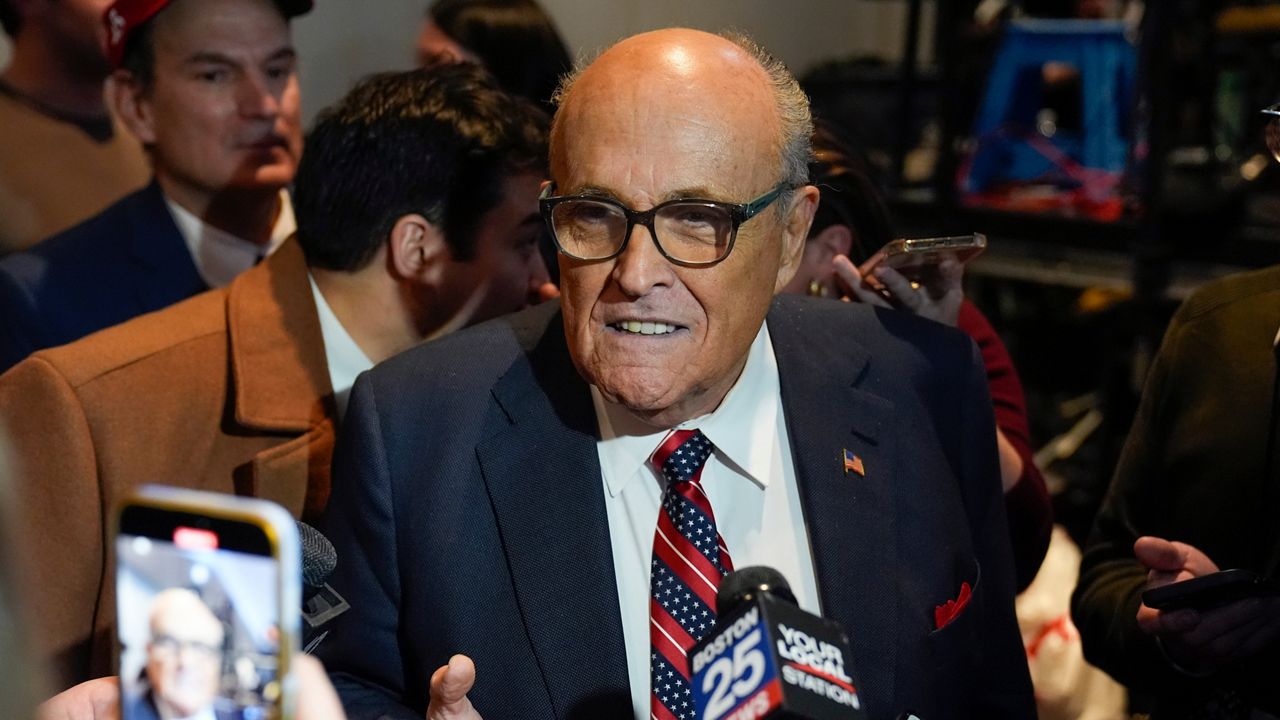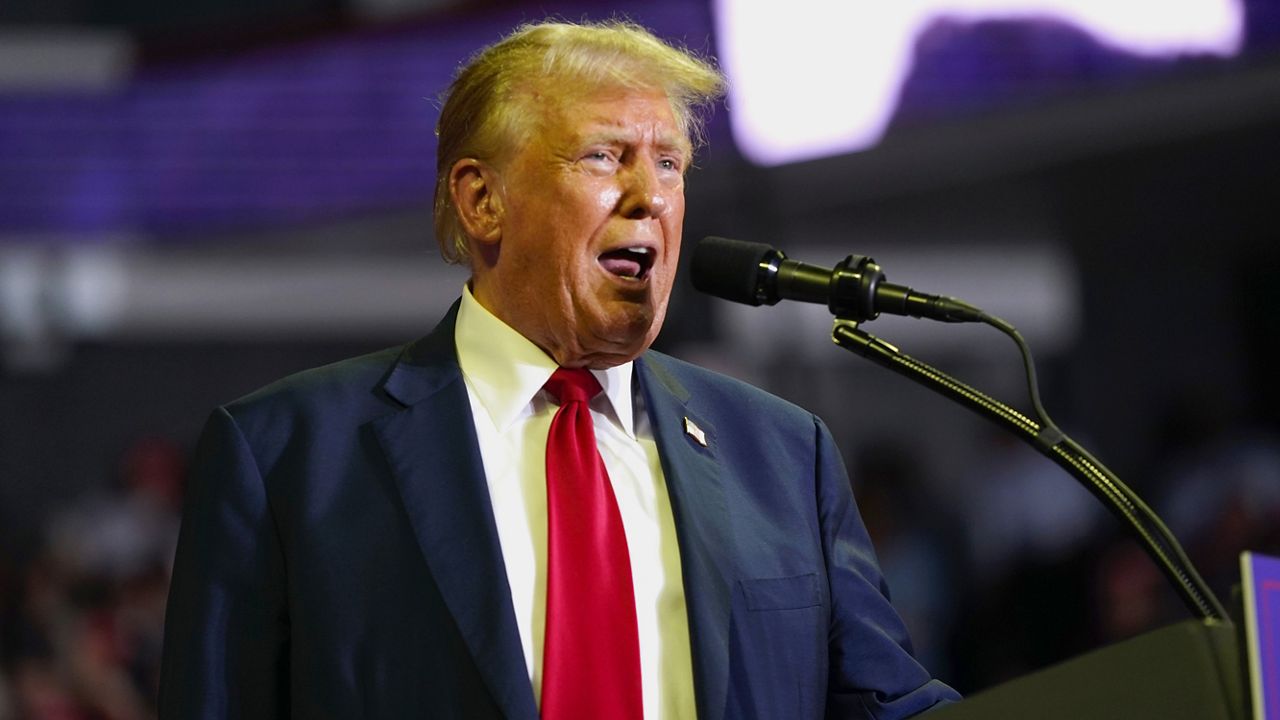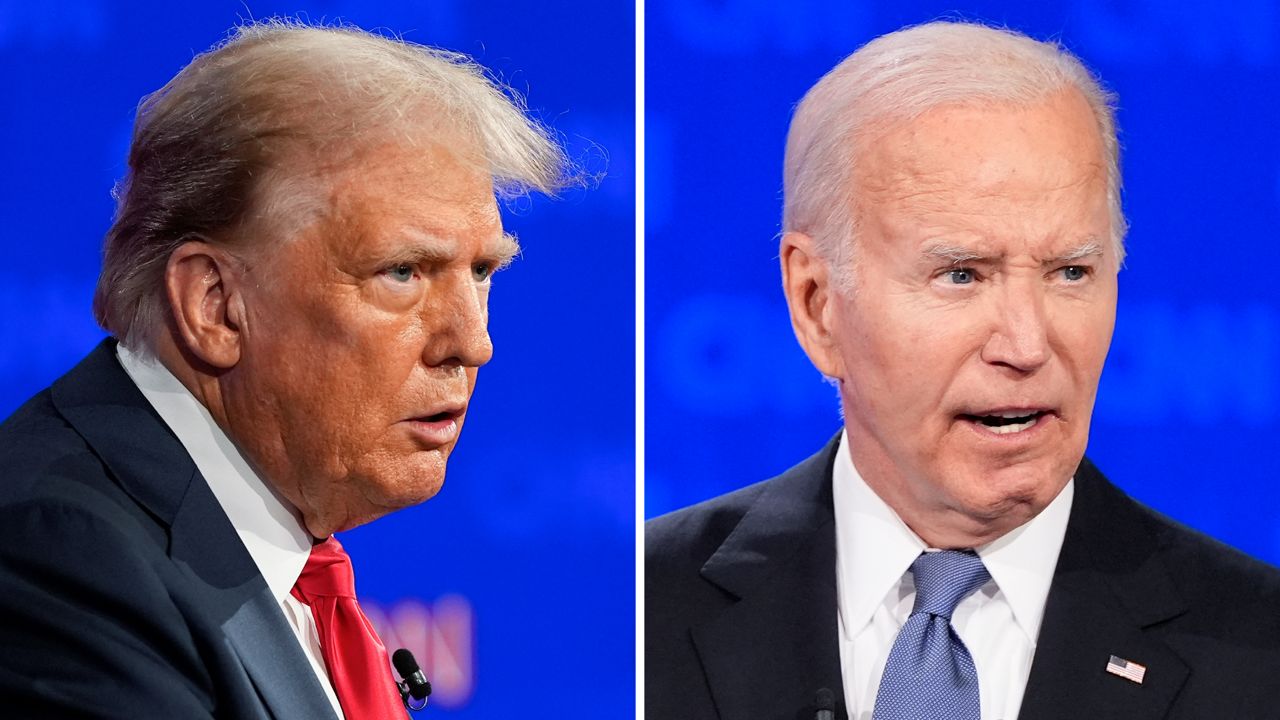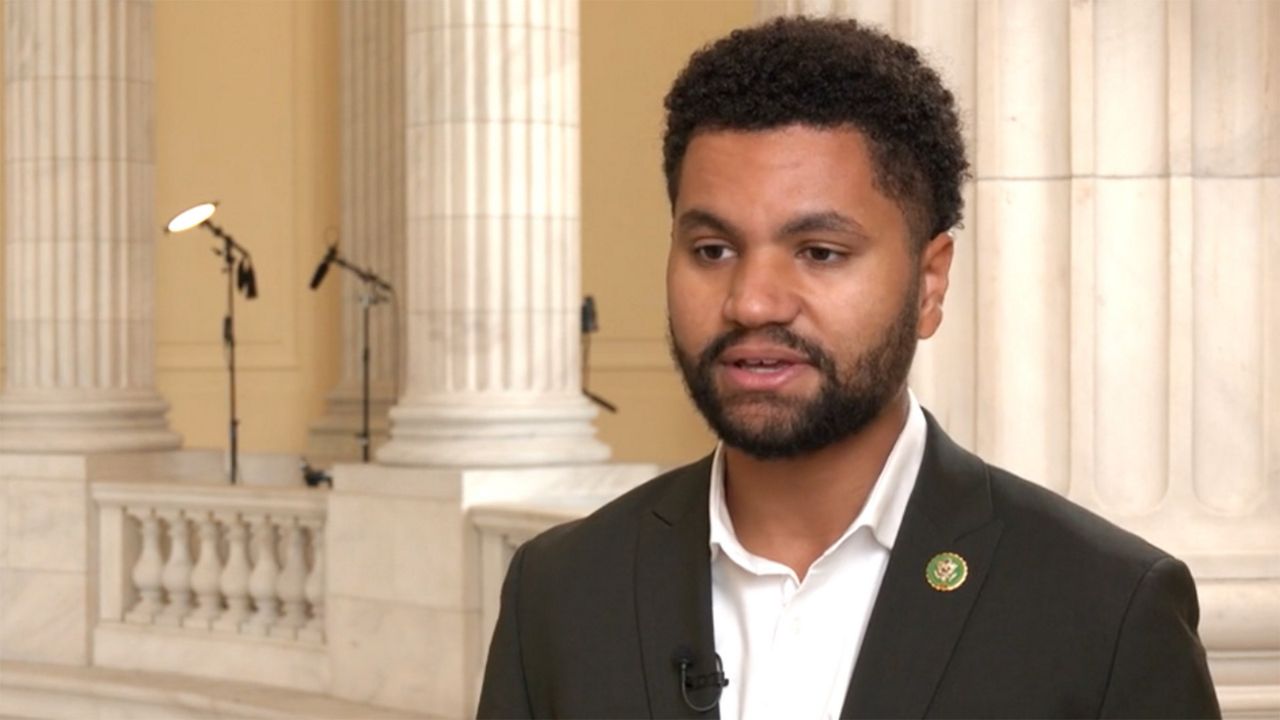President Joe Biden seeks to draw support among top Democrats after debate, and Puerto Rico to hold a statehood referendum.
'No one is pushing me out': Biden, Harris vow to keep fighting for reelection on campaign staff call
President Joe Biden and Vice President Kamala Harris on Wednesday joined a Democratic National Committee call to vow that they are staying in the fight for reelection after the incumbent's shaky performance in a debate against former President Donald Trump last week.
The call comes one day after Biden, at a donor event in Virginia on Tuesday night, offered a new explanation for his showing in the debate, blaming extensive international travel ahead of the face-off in Atlanta.
“I decided to travel around the world a couple of times, I don’t know how many time zones , shortly before the debate,” Biden told a gathering of donors at a fundraiser in McLean, Virginia, according to the White House pool.
“I didn't listen to my staff … and then I almost fell asleep on stage,” the president admitted, apologizing for his poor performance before underscoring how “critical” it is to win reelection over Trump.
“I didn't have my best night. I wasn’t very smart,” Biden admitted, later adding: “It’s not an excuse but an explanation.”
While Biden did spend six days at the Camp David presidential retreat in Maryland preparing for the debate with aides and family, the president traveled to France to mark the anniversary of the D-Day invasion in early June, then traveled to Italy for the Group of Seven summit a few days later. Upon his return to the U.S., he traveled to California for a star-studded Hollywood fundraiser before returning to Washington before heading to Camp David, with a quick stop at his home in Delaware in between.
Biden’s aides had previously blamed a cold for his debate performance, a statement that White House press secretary Karine Jean-Pierre reiterated on on Tuesday, though experts say that feeling ill after travel is extremely common. In a Weill Cornell Medicine article published last year, Dr. Ashima Oza — a primary care physician and an instructor at the esteemed institution — says about 80% of people feel ill after traveling.
“When you travel, your usual routines are disrupted,” Dr. Oza says in the article. “You may not be sleeping as well as you do at home, and your eating habits change when you’re away. You may be staying up later, consuming more alcohol and getting less exercise than usual. You’re also more likely to be in crowded places for prolonged periods, interacting with a more diverse population than you’re used to.”
All of that can weaken one’s immune system, the article states.
But the president's explanation may not quell the panic of Democrats worried about the prospect of a Trump return to the White House. One sitting Democratic member of the House of Representatives, Rep. Lloyd Doggett of Texas, publicly urged the president to withdraw as the party's nominee on Tuesday, becoming the first to outwardly do so. Other prominent Democrats, including former Ohio Rep. Tim Ryan, called for Vice President Kamala Harris to take Biden's place at the top of the ticket.
Puerto Rico to hold statehood referendum
On this fourth of July week, questions are swirling once again. Could we get a 51st state? A historic vote in Puerto Rico is happening in November to contemplate such a move. The vote is a non-binding referendum, basically getting the opinion of those on the island regarding the future of the U.S. Territory. The options include statehood, or independence, but not the current commonwealth status.
On Monday, Puerto Rico Governor Pedro Pierluisi scheduled a non-binding referendum on the island’s status.
Voters will have three choices: statehood, independence from the U.S., or independence with free association, which would mean a sovereign nation, but with some ties to the U.S. Not on the ballot: continuing the status quo.
“The goal here is to give voters on the island in Puerto Rico another opportunity to continue affirming their desire to end the current territory status and to show their preference among the non-territory options,” Executive Director of Puerto Rico Statehood Council George Laws Garcia said.
Advocates for statehood say the island’s current status as a U.S. territory denies residents full participation in all federal programs and representation in Congress.
The options in the “plebiscite” scheduled by the governor match those in the Puerto Rico Status Act, which the House passed two years ago when it was controlled by Democrats.
The Biden Administration supported the bill, but the legislation died in the Senate.
While some Republicans voted for the measure, others have expressed concerns over the island’s debt.
In Puerto Rico, the ballot measure is being supported by Democrats and Republicans.
“This plebiscite is being made by Governor Pierluisi, who is the Democratic Governor. He just lost his primary to Resident Commissioner, Jennifer Gonzalez, and they’re both supporting this effort as the highest elected officials on the island,” Garcia said.
The outcome of the vote will be non-binding, and ultimately Congress and the president will decide the island’s fate.
“It’ll provide an opportunity for members of Congress to communicate about what the nature of the different status options that are being presented to voters are based on the ballot language that mirrors the Puerto Rico Status Act, and also presents an opportunity for Congress to further refine the Puerto Rico Status Act,” Garcia said.
Currently, about 3.2 million people reside in Puerto Rico. They are U.S. citizens, but they have no voting representatives in Congress or in the Electoral College, and do not have full protection under the U.S. Constitution.









